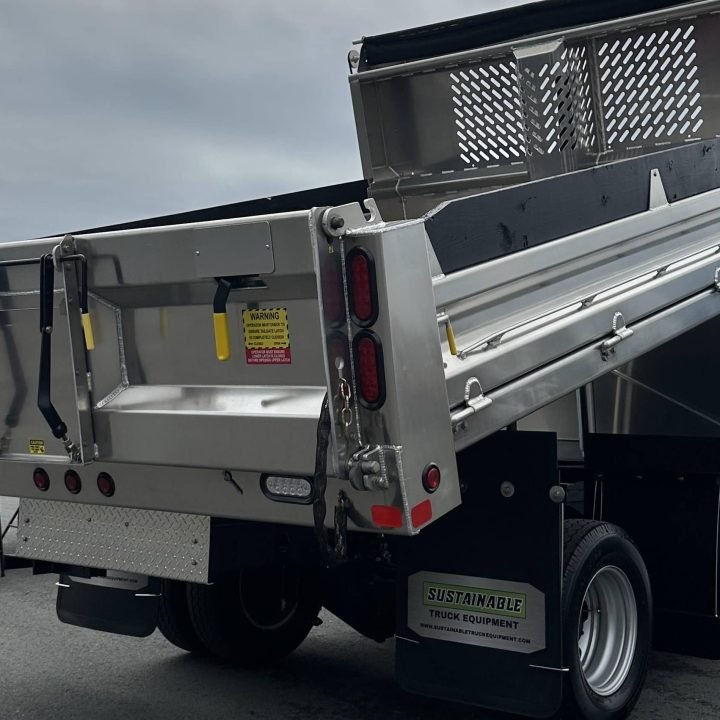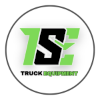Maintaining your truck equipment is essential to ensure that your investment lasts as long as possible and operates efficiently. Whether you’re managing a fleet of commercial vehicles or just one work truck, proper maintenance can prevent costly breakdowns, extend the life of your equipment, and improve safety. This guide will walk you through the best practices for maintaining various types of truck equipment, including flat decks, dump trucks, crane trucks, and more.
1. Regular Inspection and Cleaning: The First Line of Defense
Importance of Routine Inspections: Performing regular inspections is crucial for catching potential issues before they become serious problems. Schedule routine checks for all components, including hydraulic systems, electrical wiring, and mechanical parts. Look for signs of wear and tear, rust, leaks, or anything out of the ordinary.
Cleaning and Maintenance: Keeping your truck equipment clean is more than just about aesthetics; it’s about preventing damage. Dirt, grime, and debris can cause rust and corrosion, especially in moving parts. For instance, keeping the hydraulic cylinders of your dump truck clean ensures smooth operation and extends their lifespan.
2. Lubrication: Keep Everything Running Smoothly
Why Lubrication Matters: Lubrication reduces friction between moving parts, minimizing wear and tear. This is particularly important for equipment like crane trucks and aerial lift trucks, where constant movement can cause parts to grind against each other.
Best Practices:
- Regular Schedule: Establish a regular lubrication schedule based on the manufacturer’s recommendations.
- Use the Right Products: Ensure you’re using the correct type of lubricant for each part of your equipment. For example, using a high-quality grease on pivot points and hinges will prevent them from seizing up.
- Don’t Overdo It: Over-lubrication can attract dust and debris, which can lead to premature wear.
3. Hydraulic System Maintenance: Powering Your Equipment
Understanding Hydraulic Systems: Hydraulic systems power much of the heavy lifting and moving parts in your truck equipment, from dump trucks to hooklift trucks. Keeping these systems in top condition is critical for their performance and longevity.
Maintenance Tips:
- Fluid Levels: Regularly check and maintain the hydraulic fluid levels. Low fluid can cause the system to overheat and fail.
- Filter Changes: Change hydraulic filters as recommended to prevent contaminants from entering the system.
- Inspect Hoses and Connections: Look for signs of wear, leaks, or damage in the hydraulic hoses and connections. Replace them as necessary to prevent catastrophic failures.
4. Electrical System Care: Ensuring Reliable Operation
Why Electrical Maintenance Is Crucial: The electrical system in your truck powers everything from lights to complex control systems. Regular maintenance can prevent electrical failures that could sideline your equipment.
Maintenance Tips:
- Battery Care: Keep the battery terminals clean and ensure the battery is properly charged. Replace old batteries before they fail completely.
- Wiring Inspection: Regularly check all wiring for signs of fraying, corrosion, or loose connections.
- Lighting: Ensure all lights are functioning correctly. This is especially important for safety on the road and on job sites.
5. Tire Maintenance: The Foundation of Your Truck
The Role of Tires in Equipment Longevity: Tires are literally where the rubber meets the road, and they play a critical role in the safety and efficiency of your truck. Proper tire maintenance can prevent blowouts, improve fuel efficiency, and extend the life of your tires.
Best Practices:
- Regular Checks: Inspect tires for wear, proper inflation, and any signs of damage.
- Rotation: Rotate your tires regularly to ensure even wear, which can extend their lifespan.
- Alignment and Balancing: Keep your wheels aligned and balanced to prevent uneven tire wear and improve handling.
6. Winterization: Preparing for Harsh Conditions
Why Winterization Is Important: Harsh winter conditions can be particularly tough on truck equipment. Cold weather can affect everything from batteries to hydraulic systems, so proper winterization is essential.
Winterization Tips:
- Antifreeze Levels: Ensure that your antifreeze is at the correct level and that the system is free of leaks.
- Battery Check: Cold weather can reduce battery efficiency, so make sure it’s fully charged and in good condition.
- Tire Chains: Equip your truck with tire chains if you’ll be driving in icy conditions. This improves traction and safety.
- Hydraulic Fluid: Use a hydraulic fluid that is rated for low temperatures to ensure smooth operation in cold weather.
7. Scheduled Professional Maintenance: The Key to Long-Term Success
Why Professional Maintenance Matters: While daily and weekly checks are essential, having your truck equipment professionally serviced on a regular basis can catch issues that you might miss. Mechanics with experience in commercial vehicles can provide a more thorough inspection and address problems before they lead to downtime.
Recommended Schedule:
- Quarterly Inspections: Have your equipment professionally inspected at least every three months.
- Annual Overhaul: Consider a comprehensive annual service that checks all systems, including the engine, transmission, and hydraulic systems.
Conclusion
Maintaining your truck equipment is not just about following a set of rules—it’s about protecting your investment, ensuring safety, and maximizing productivity. By incorporating these best practices into your maintenance routine, you can extend the life of your equipment, reduce downtime, and keep your business running smoothly. Whether you’re managing a single truck or an entire fleet, consistent and thorough maintenance is the key to longevity.









